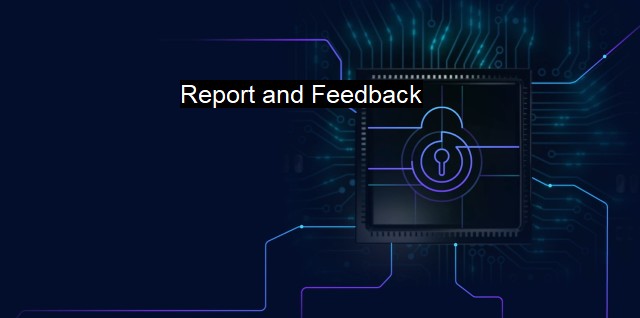What is Report and Feedback?
The Role of Report and Feedback in Maximizing Cybersecurity and Antivirus Software: Importance and Benefits
Reporting and Feedback are two integral components in the framework of cybersecurity and antivirus systems. They are essentially mechanisms through which data about potential threats and vulnerabilities are collected and communicated back to the users or system administrators. They help with timely prevention and correction of forthcoming dangers that may lead to significant damage.A report in the cybersecurity realm is a document or system function that condenses complex threat data in an understandable format. It usually summarizes the vulnerabilities found in a system and provides an overview of the threat landscape. As an essential part of antivirus software, reports furnish critical information about detected malware or viruses, blocked threats, and completed system scans. Reporting helps in tracking the efficiency and to monitor the performance of an antivirus software over time. This tracking is pivotal in assessing the software's efficacy and adopting the needed measures by technicians to maintain the product's standard.
Cyber threat reports play an essential role in proactively identifying and responding to possible attacks. These reports comprise details on open ports, insecure applications, vulnerable scripts, and other web apps that could become a potential source of attack from cybercriminals. Conducting precise, thorough, and periodic reports allows a faster response. Reports can be weekly, daily, or real-time, depending on the specific requirements and risks associated.
On the other hand, feedback in a cybersecurity setting is a process where users provide insights on their experiences using the cyber defense or antivirus tool, during or after an attack. In layman terms, it's the review section of the system or software where end users can give their inputs. Feedback may come in the form of detailed experiences with the software or tool, suggestions for improvements, or records of anomalies experienced during usage. These valuable criticisms could be about the interface, navigation, or firewall efficiency, software response time, or even features they wish it contained.
In antivirus software, Feedback can help in offering potential leads to hidden flaws. These times, feedback loops are being analyzed with AI and machine learning to identify patterns and make improvements based on insights drawn. It can increase developers' ability to understand how well the software identified, quarantined, or removed threats from a user's standpoint.
Even the antivirus companies benefit hugely from user feedback. It provides real-time data for troubleshooting software bugs, improving product features and functionality, user interface enhancements, feature requests, and overall development road mapping. They are positioned to make prospective adjustments or strategy based on previous successes or failures, making it indispensable to combating cybersecurity threats effectively.
Report and feedback in cybersecurity and antivirus context are fundamental aspects for enhancing security posture. Reporting not only emphasises problems and activities, but it also shares insightful information; on another hand, feedback affirms an opportunity to yield improvements. Both positioned together becomes a formidable combination for combating cybersecurity threats with potency. Above all, it bolsters the chance of evolving sturdy, infallible security protocols that respond to dynamic cybersecurity threats, ensuring continuous software improvement.

Report and Feedback FAQs
How do I report a cybersecurity issue I discovered on my computer?
You can report a cybersecurity issue you discovered on your computer by contacting your antivirus provider's support team or reporting it to the appropriate authorities. Your antivirus provider may have a dedicated reporting tool or hotline, and you may also report the incident to organizations such as the Internet Crime Complaint Center (IC3) or the Cybersecurity and Infrastructure Security Agency (CISA).What should I include in my feedback to my antivirus provider?
You should include as much relevant information as possible in your feedback to your antivirus provider. This may include the nature of the issue, any error messages you received, the date and time of the incident, and any actions you took to resolve the problem. Providing this information can help your antivirus provider investigate and address the issue more effectively.How can I provide feedback to my antivirus provider?
Many antivirus providers have various channels for providing feedback, such as support tickets, online forums, or customer feedback forms. Some providers may also have a feedback button within their software. Check your provider's website or documentation for the appropriate channels to submit feedback.What can I expect after submitting a report or feedback to my antivirus provider?
After submitting a report or feedback to your antivirus provider, you can expect them to review your submission and investigate the issue. Depending on the severity and complexity of the issue, it may take some time for them to respond or release an update to address the issue. You may receive updates on the progress of the investigation and any steps taken to address the issue.| | A | | | B | | | C | | | D | | | E | | | F | | | G | | | H | | | I | | | J | | | K | | | L | | | M | |
| | N | | | O | | | P | | | Q | | | R | | | S | | | T | | | U | | | V | | | W | | | X | | | Y | | | Z | |
| | 1 | | | 2 | | | 3 | | | 4 | | | 7 | | | 8 | | |||||||